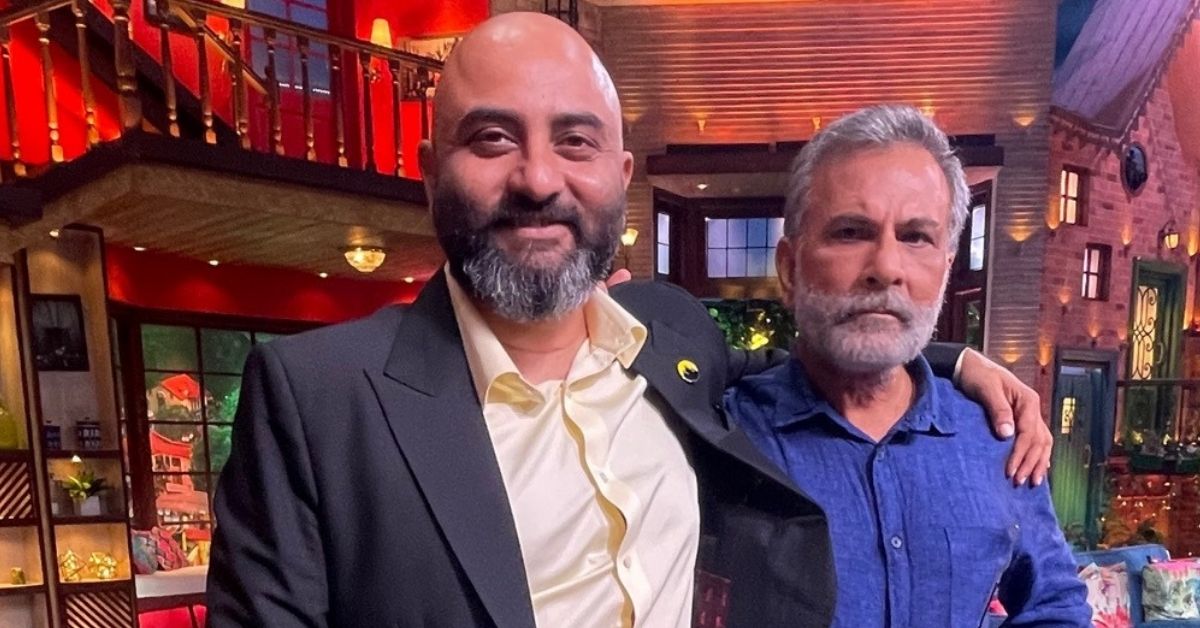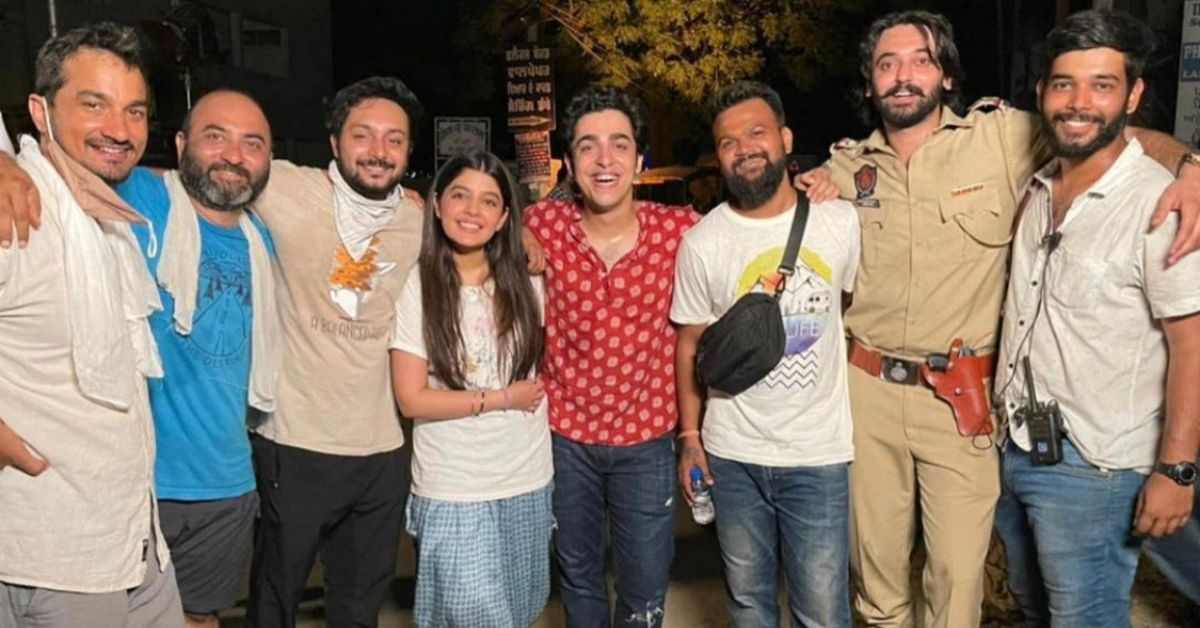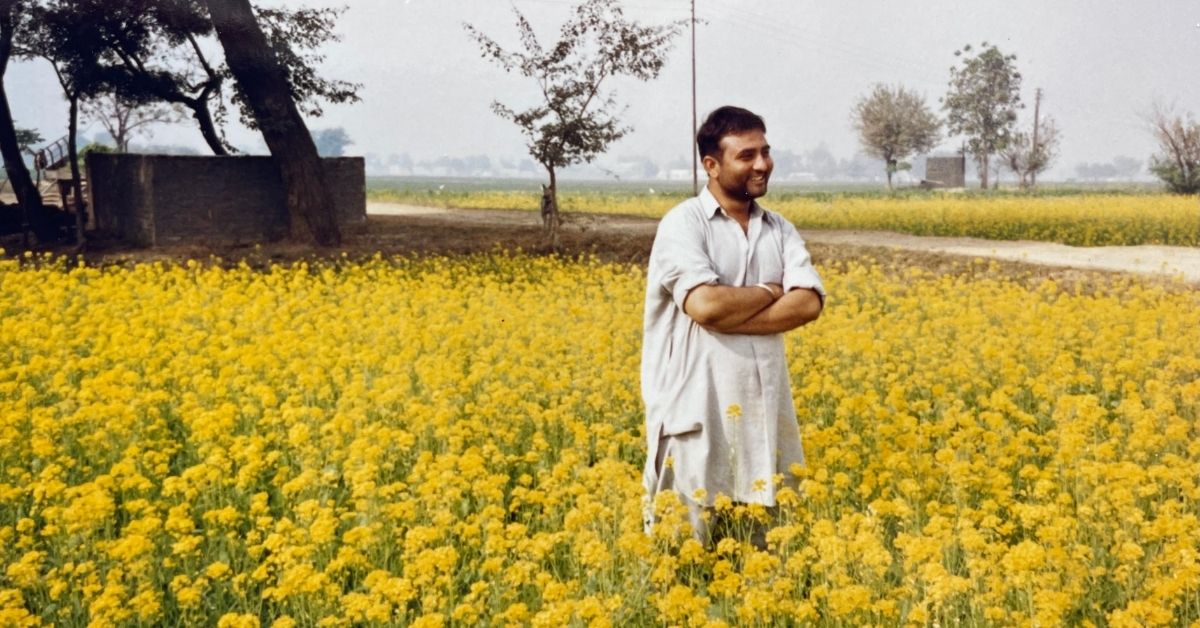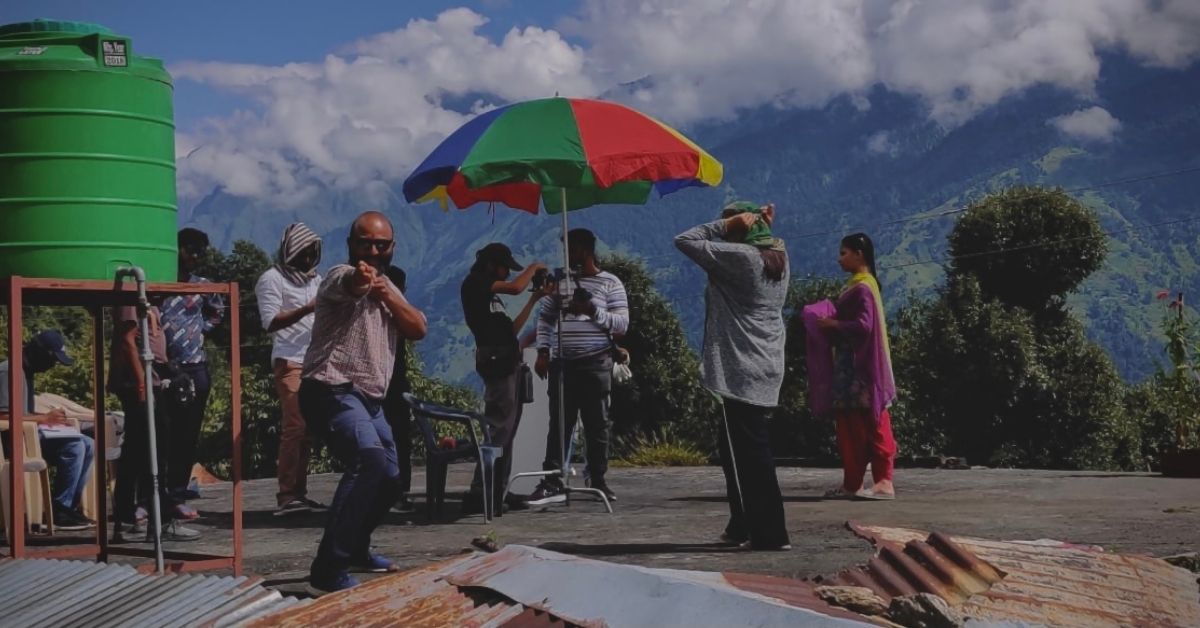Loved Sony Liv’s ‘Tabbar’? Director Shares His Battle Against Bullying, Cancer
A self-taught director, Mumbai-based Ajitpal Singh's earlier short films suffered as he adapted other filmmakers’ techniques. Today, he is holding his own in regional cinema with series like Tabbar on SonyLiv.

Film director Ajitpal Singh was diagnosed with thyroid cancer just before the shooting of his debut series. The production house postponed the dates; Ajitpal underwent the surgery, and a week later he was back on the sets, directing ‘Tabbar’ — a Hindi-Punjabi series for SonyLiv.
Even though the recovery stage for cancer patients is complicated, tricky and unpredictable, Ajitpal chose to remain oblivious to this reality. “It is only when I used to lie down at home at the end of a fulfilling shoot that reality hit. But the anticipation of the next day’s shoot kept me going,” Ajitpal tells The Better India.
Despite the lockdown, illness and the pressure to do justice with a stellar cast, including Pavan Malhotra and Supriya Pathak, he delivered a poignant series.
The series reiterated that Over The Top (OTT) services can provide quality entertainment whilst dismantling the superficial narratives built by Hindi cinema. The eight-part series revolves around Omkar, a retired policeman (Pavan) trying to protect his wife Sargun (Supriya) and two sons (Sahil Mehta and Gagan Arora) after they are caught in a web of crimes.

From jaggratas, politics, drug menaces, police force to the sentiments of a family, the scenes could very well be played out in a cramped neighbourhood of Jalandhar.
The secret behind this level of earnest depiction is Ajitpal’s sincerity towards driving experiences from his own life. For example, Sargun’s faith in God for taking care of her diabetes over insulin is something Ajitpal has seen in his mother.
This kind of filmmaking is in sharp contrast to what Ajitpal was following a decade ago.
A self-taught director, his earlier short films suffered as he adapted other filmmakers’ techniques. “I was constantly trying to prove myself by trudging on the wrong path. One has to embrace their background in order to bring something original and new to the table,” says Ajitpal.
Born in Punjab and raised in Gujarat, Ajiptal currently lives in Mumbai. Ajitpal comes from a humble background and his childhood was not particularly rosy. He was bullied in school, his family lost everything at one point and the Bollywood industry mocked him for not knowing English.
He shares his journey as an independent filmmaker, albeit one where nothing comes easy and dejections could be an everyday affair.
‘I Was Bullied A Lot’

Ajitpal was around 7 or 8 when his family moved from Bathinda to Ahmedabad to be with his father who was doing a meagre job. His family had lost a lot of money in an investment. This was around 1984-85, the same year when Prime Minister Indira Gandhi was assassinated by her Sikh bodyguard.
“Due to the assisaniation and Khalistan movement, I was bullied a lot in school. Students and even the teacher called me a ‘terrorist’. Everyone had groups but I was isolated because of my identity. All the Sardar-related jokes came my way. My parents then changed my school and even cut my hair short,” he recalls. “Tempers died down when the Babri Masjid incident happened. I became a class topper and soon I was preparing to study chemistry in college,” he adds.
It was while studying in college that Ajitpal’s interest in storytelling blossomed. He started reading books and watching international cinema, particularly French films. He also directed plays to tell stories.
Directing plays was exciting for now Ajitpal was able to use his sour experiences and package it creatively.
“I was blown away by a French movie called ‘The 400 Blows’ (1959). François Truffaut, the director, used his childhood adventures to make a masterpiece on friendship, education and family. The movie also delves into injustice, escapism, discipline and that resonated with me. For the first time I realised that my lack of command over any language is not a barrier to make films. All I needed was to learn the ‘filmmaking language’, and use terms like ‘wide shot’, ‘close up’, ‘trolly’, etc,” says Ajitpal.
Key To Success

He did not have the money to pay for film school, so he turned to books and learnt all about filmmaking. But it took him almost a decade of learning to make his presence felt in the movie industry.
He dabbled in 3D-animation, motion graphics, directed corporate movies while working at National Institute of Design, photography and even theatre.
One of the gigs as a researcher for a Yugoslavian movie took him to different parts of the country and travelling became his most efficient teacher.
“I was around 28 when I felt my vision was limited. The people I met knew so much about history, painting, politics and art. I felt like I wasted so many years of my life and now I had to hurry to overcome my insecurity,” says Ajitpal, who then began working on his first screenplay.
While doing a gig for the Ahmedabad film festival, he came across the Sundance Screenwriters Lab and applied for it in 2012.
“I must have written some 20 drafts over two years, and it was accepted. The experience of training under Asif Kapadia and Guillermo Arriaga was enriching and I thought I was ready to be a filmmaker. But being a newcomer had its challenges. My scripts were mocked and people made fun of my English. These bitter incidents shaped me a lot,” says Ajitpal.
After three underwhelming moves, his fourth short film, Rammat Gammat (2018)—currently streaming on MUBI—made a breakthrough.
Next came his first feature film, Fire In The Mountains (2021). Set in Uttarakhand, it is about a mother scrambling to earn enough money for her wheel-chair bound son’s education and treatment. The film premiered in Sundance Festival 2021.
Speaking of Tabbar, he says he was not the first choice for directing the series. Written by Harman Wadala and Sandeep Jain, Ajitpal spent a lot of time on reading the scripts to identify the underlying themes.
“My cancer gave me a chance to figure out the super objective of the characters. I asked multiple questions in each line and only after I had answers did I visualise the melancholic mood,” he adds.
Price For Being an Indie Filmmaker
With no backing of big production houses, contacts in the industry and a strong lineage of work, finding the ‘right work’ and delivering one’s choice of content can be a harsh, and at times a discouraging process.
Ajitpal, who never went to a film school, says the trick is to fail multiple times while keeping the movie ‘keeda’ alive.
“Travelling, as I mentioned, is the best way to start. It can be a luxury for many so like me you can stay in cheap hotels, make friends who can offer their sofa at night and travel by train. For so many years I had only two pairs of jeans and a T-shirt,” he says.
He adds, “Do not wait for a financier and keep making low-budget short films to perfect your art. Do not abandon your projects. As an independent filmmaker there are limitations but this is a price you must be ready to pay.
Riding high on Tabbar, Fire in the Mountain and Rammat Gammat, Ajitpal is getting several offers. Currently, he is working on a series and will soon pitch it to an OTT platform.
(Edited by Yoshita Rao)
If you found our stories insightful, informative, or even just enjoyable, we invite you to consider making a voluntary payment to support the work we do at The Better India. Your contribution helps us continue producing quality content that educates, inspires, and drives positive change.
Choose one of the payment options below for your contribution-
By paying for the stories you value, you directly contribute to sustaining our efforts focused on making a difference in the world. Together, let's ensure that impactful stories continue to be told and shared, enriching lives and communities alike.
Thank you for your support. Here are some frequently asked questions you might find helpful to know why you are contributing?


This story made me
-
97
-
121
-
89
-
167














